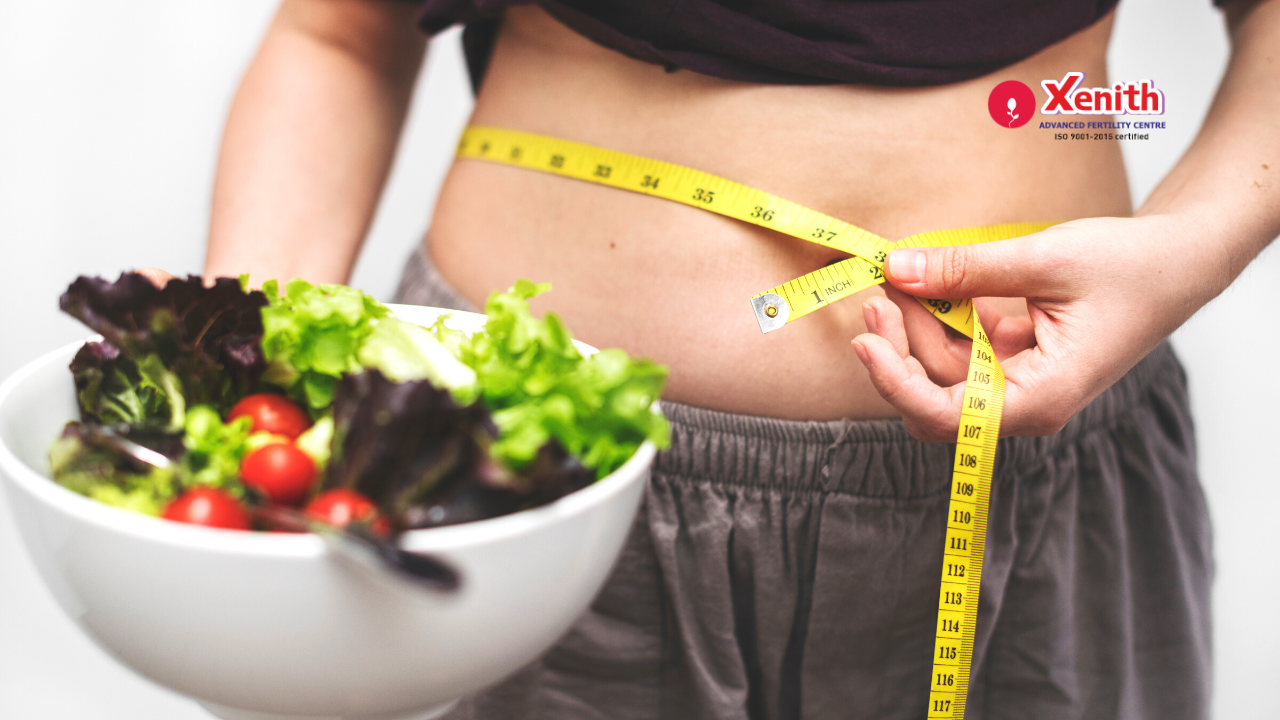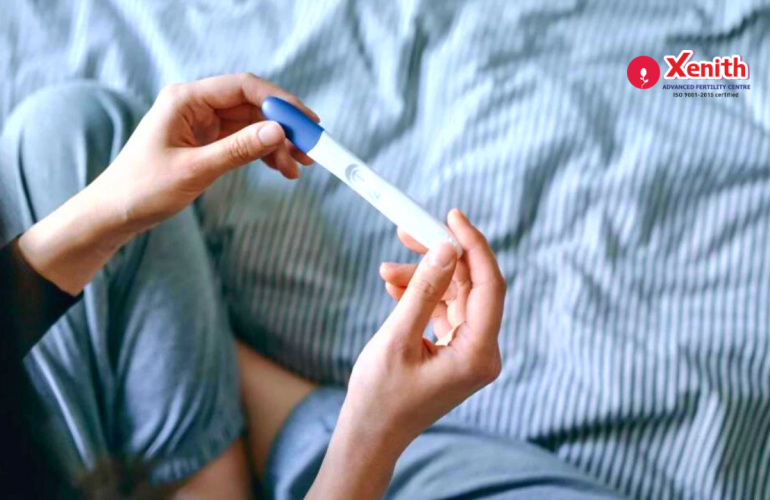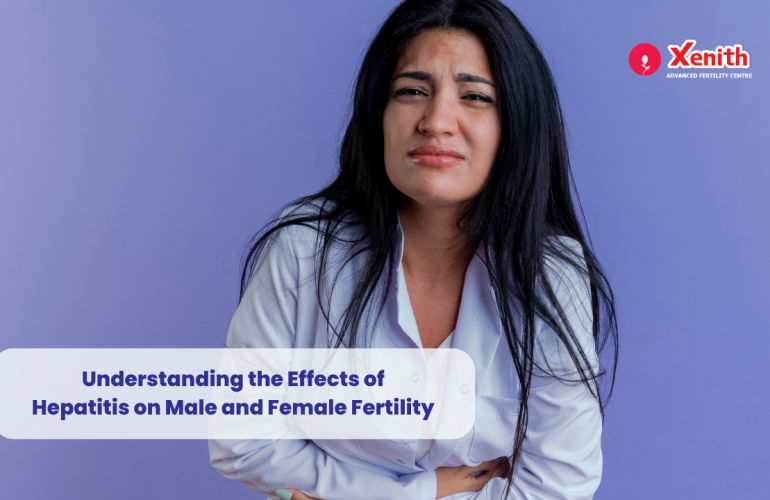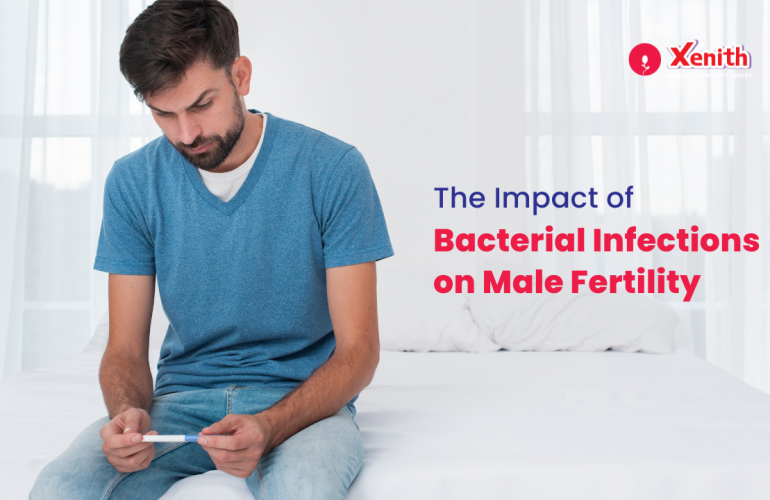PCOS is short for Polycystic Ovarian Syndrome. It is a common endocrine and reproductive disorder in women characterized by hormonal imbalances, irregular periods, and the development of small cysts in one or both ovaries. PCOS can lead to metabolic disorders associated with insulin resistance and inflammation making it harder for women to lose weight.
PCOS Diet and Nutrition
Too much insulin in the body can turn your body into a fat storage facility. According to the National Institutes of Health, “Between 40% and 85% of women with Polycystic Ovary Syndrome (PCOS) are overweight or obese and obesity is closely linked to the development of PCOS.”1
Losing weight is one of the first recommendations doctors prescribe to women with PCOS. The problem is: women with PCOS may find that they are always hungry. The hormonal imbalance, insulin resistance, and inflammation can make it even harder for women with PCOS to lose weight.
While achieving weight loss can be an uphill climb for women with PCOS, it can be done with a little willpower and consistency in maintaining a balanced exercise and diet regimen. Treatment for PCOS usually involves reducing insulin levels and this may involve making changes in your diet and lifestyle.
Diet Changes: Tips for losing weight for women with PCOS
This should encourage the women with PCOS who are struggling to lose weight: Studies have noted that even a 5% loss in body weight can improve insulin resistance, hormone levels, menstrual cycles, fertility, and overall quality of life in women with PCOS.2
Work toward achieving smaller goals and over time you’ll find weight loss success. Here are some tips that can help you lose weight.
Reduce your carb intake
Maintain what is called a low glycemic diet – a diet that is low in carbs, rich in fiber, and includes an adequate amount of protein at each meal. A low glycemic diet can improve the body’s use of insulin which in turn could lead to weight loss.
Refined carbs like white bread, pasta, as well as store-bought juices, and packaged foods can cause your blood sugar to rise and fall quickly making you only hungrier for more. Eat foods with complex carbs like vegetables (leafy greens, green beans, peas, carrots), fruits, whole grains, and legumes like dals because they take longer to digest due to their high fiber content. Keep snacks on hand like nuts and fruits sprinkled with seasonings like lemon juice, spices, and fresh herbs to spruce up your foods. Avoid foods like cakes, cookies, candy, and fast foods.
Get enough protein intake
Eating protein-rich foods can help stabilize blood sugar levels and reduce cravings. Protein has a way of making you feel fuller, for longer. Healthy high protein foods include dals, beans, yogurt, eggs, nuts, white meat, and seafood. Eat about with 1.5 grams of protein per kilogram of your ideal body weight.
Up your fiber intake
When you feel hungry, snack on cucumbers and carrots – these are high-fiber foods that can help to stabilize your blood sugar and keep you fuller longer. Vegetable smoothies with a protein powder is a great way to get fiber and protein into your daily diet and kill those hunger pangs. According to the American Heart Association, women should eat at least 21 to 25 grams of fiber per day.
Lifestyle Changes: Tips for losing weight for women with PCOS
Practice mindful eating
Mindful eating means actually sitting down at specified meal times, savoring your food and thinking about what you are putting in your body without distractions like the television so that you are more aware of cues from your body which helps in portion control and prevents overeating. It may help with eating issues like binge eating and emotional eating
Reduce inflammation
Inflammation is your body’s natural response to infection or injury. But chronic inflammation is linked to obesity and is common in women with PCOS. Sugar and processed foods may contribute to inflammation. A diet like the Mediterranean diet which is high in fruits, vegetables, whole grains, olive oil, and omega 3 rich foods such as fatty fish may protect against inflammation.
Don’t undereat
Don’t go overboard in your diet. Eating too few calories can negatively affect the hormones that control your appetite and in the long term may slow down your metabolism eventually leading to weight regain after initial weight loss. So don’t restrict caloric intake but focus on eating whole foods and cutting out unhealthy products. Eat a healthy breakfast high in protein, healthy fats as well as fiber which in turn can help decrease your appetite throughout the day. Try eating smaller more frequent meals.
Exercise regularly
Exercise first, and eat later. Exercising just before a meal can help boost your metabolism so that you are storing carbs for energy, and not fats. Exercise can also help your body use up extra glucose stores bringing your insulin levels down. Exercising at least 30 minutes every day to get your heart rate up can help and help you lose calories faster. A regular, consistent exercise pattern trains your body to utilize glucose properly.
Get enough sleep
If you have PCOS, you may experience sleep disturbances. You may feel very sleepy during the day if you have not had adequate sleep. Poor sleep has been linked to obesity because it can increase the activity of certain hormones which cause you to eat more throughout the day. It’s good to have 6 to 8 hours of sound sleep every night.
Manage your stress
Stress increases levels of the hormone cortisol. High levels of this hormone for long periods of time are linked to insulin resistance and weight gain. Find a way to cope with stress. Take time to do whatever it is that can help you relax. For some women, it is reading a good book or watching a good movie. For some, it can include practicing meditation, doing yoga, or spending time gardening. Women with PCOS need to watch their calorie intake. Any excess in calories can lead to more storage of fat in the body. If you have PCOS and are struggling to lose weight, visit us at Xenith Advanced Fertility Clinic. PCOS can also be one of the primary for not being able to conceive so treating PCOS early can lead to more successful chances of getting pregnant. Consult with one of our dieticians who specialize in PCOS weight loss.




